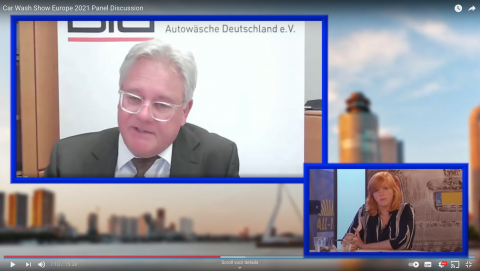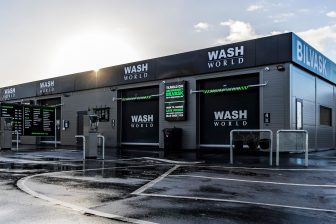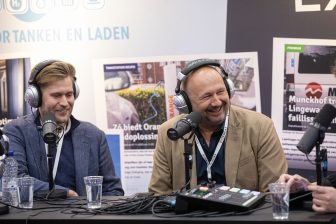
Indoor vacuuming and interior cleaning biggest trends for Western European car wash market
The Western European car wash market is seeing an increase in indoor vacuuming and interior cleaning. There is some interest in unmanned express washing, but the personal contact with customers (especially in the prewash) is still too valuable for car wash operators. That was the outcome of a panel discussion between three Western branche organizations during the Car Wash Show Europe.
During the Car Wash Show Europe three Western European branche organizations discussed a few current topics and themes within the car wash market. The speakers were: Brian Madderson (chairman of the CWA in the UK), Thomas Drott (BTG Minden in Germany) and Mark de Graaf (of Bovag in the Netherlands).
Hand washes
Brian Madderson of the CWA started by explaining how the UK market is organized. He calls the market ‘very peculiar’ compared to the rest of Europe. The UK has the highest number of unregulated hand car washes. “The estimate is up to 20.000 locations next to 3.500 regulated automated washes on forecourts.”
“The number of hand car washes has accelerated over the last years”, he continues. “This has made a massive dent in the automated car wash market, we reckon it has shrunk by a third during those years. Right now we may just be seeing the effect of regulations talking place, and also of the Brexit and a new immigration bill.”
The hand washes avoid taxes and underpay staff. In some cases the hand wash is the backdrop of labour abuse and even human trafficking. “And then there’s the effects of hand washes on the environment, think of toxic waste and acid going into storm drains”, says Madderson.
Multiple bays
About 95 per cent of the 3.500 automated car washes in the UK are located at gas stations. The market has about 2.000 rollovers, well over 4.500 jet washes. “It’s usually a combination of these facilities. Brits like to wash their cars themselves.”
The latest trend for the UK is not an increase in belt conveyors or tunnels, but the installation of multiple bays with high quality jet washes to reduce waiting times and convenience for the customers.
Privately owned
BTG is the only trade organization in Germany. In the last years the number of car washes in Germany has declined, Thomas Drott of the BTG explains. He says this is a ‘good development’. The estimate for Germany is that there are 2.400 tunnels, 2.400 to 2.800 jet washes (with more than four bays) and 14.000 rollovers. The rollovers are mostly located at gas stations and belong to oil companies that lease them to the operators.
The car wash tunnels are mostly privately owned by people who usually have one to five locations. There are a few businesses that run more than five locations and only a few chains in Germany – the best known are Mr Wash and CleanCar.
Less washes, but higher quality
The number of washes per car per year in Germany has decreased over the past years. Drott explains: “this used to be between ten and twelve, now it is down to six to eight washes. However, the customer has higher demands for the washes they do buy, they choose premium car wash programmes.”
Drott explains the decrease in the number of washes by the increased number of cars Germans own.
Typically Dutch
Mark de Graaf of Bovag spoke about the Dutch market. “Over these past few years the market has really professionalized. We see a lot of car washes from the rollover type change to tunnels.” Typically Dutch according to De Graaf is is that larger car washes invest in interior cleaning belts and (indoor) vacuum locations.
In the Netherlands most car washes are privately owned and not in the hands of big chains with multiple locations.
The coming years
The three men close their panel discussion with a look to the future According to Madderson of the CWA the land in the UK is too expensive for quick expansion and the market will likely remain consisting mostly of mom-and-pop stores. “The investment is too large”, he says. “And there is still the problem with the hand washes, those do not leave room for growth of the automated market.”
Drott of BTG Minden sees a future for unmanned express washing, but the personal touch will remain even more important – especially when it comes to the prewash areas. “The bigger trend in Germany is similar to what we’re seeing in the Netherland: we’re moving to indoor car washes with room for vacuuming and interior cleaning.”
You can watch the discussion between Drott, De Graaf and Madderson below.
Also read:
- Christ places prewash inside their newest tunnel
- Responsible Car Wash Scheme launches hand car wash licence pilot project in the in the UK
- Ryan Essenburg (Tommy’s) predicts return of pay vacuums at car washes



